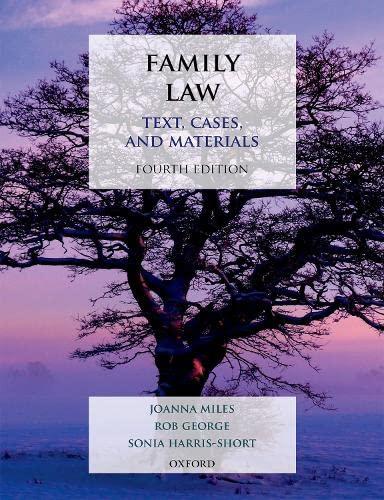Question
1. What limitation on the judicial power, if any, was articulated by the Supreme Court in response to the Washington Administration? What arguments did the
1. What limitation on the judicial power, if any, was articulated by the Supreme Court in response to the Washington Administration? What arguments did the Court rely upon to support its position? What additional limitations, if any, were suggested by the Court's reasoning?
2. Does the summary of the Revolutionary War pension cases illustrate that as early as 1794, the U.S. Supreme Court had declared federal legislation to be inconsistent with the Constitution?
3. If the Court had declared a federal statute void as inconsistent with the Constitution, what specifically was the problem with the statute?
a. Was it that Congress may not mandate that federal judges adjudicate such claims?
b. Was it that Congress may not authorize federal judges to undertake such duties, even on a voluntary basis?
c. Was it that, if federal judges were required to adjudicate such claims, the Executive Branch must be obligated to accept the adjudication as conclusive?
d. Was it that, if federal judges were required to adjudicate such claims, Congress could not retain discretion to revise the pension law with respect to claims not then finally adjudicated?
e. Was it that, if federal judges were required to adjudicate such claims, Congress could not award benefits to a claimant after the Executive Branch determined the claimant did not qualify? Why should Congress not be permitted to create additional pension for a particularly worthy individual (by a "private law") even if he did not qualify under the public law as viewed by the Executive?
Step by Step Solution
There are 3 Steps involved in it
Step: 1

Get Instant Access to Expert-Tailored Solutions
See step-by-step solutions with expert insights and AI powered tools for academic success
Step: 2

Step: 3

Ace Your Homework with AI
Get the answers you need in no time with our AI-driven, step-by-step assistance
Get Started


